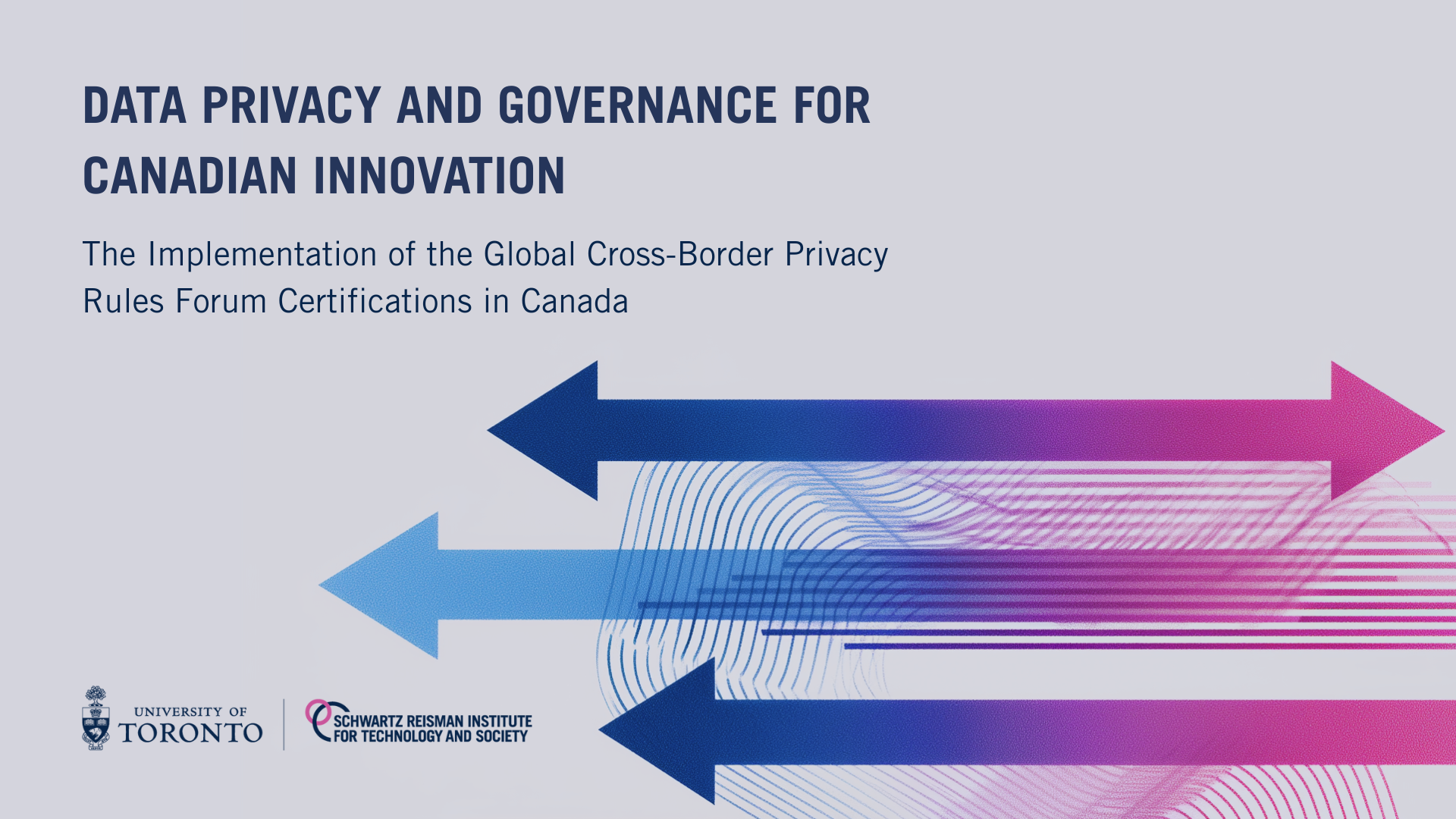Gillian Hadfield: How do we build trust in the age of Big Tech?
In a recent TEDxToronto talk now available online, SRI Director Gillian Hadfield examines how we can bring our relationship with technology back into balance, and why it requires reinventing our rules for the 21st century.
How can we bring our relationship with technology back into balance? Schwartz Reisman Institute Director and Chair Gillian Hadfield explores this question in a recent TEDxToronto talk, which is now available on the TEDx YouTube channel.
Hadfield observes that while technological advances provide countless advantages to society, many are now beginning to feel distrust towards the companies who provide them. Revelations about big tech companies’ excessive information gathering practices, allegations of user manipulation, decisions around what counts as free speech, and the promotion of disinformation have all eroded public trust in the institutions at the forefront of the digital revolution.
To solve this problem, Hadfield argues that we need to look beyond the companies themselves and focus instead on the underlying societal conditions that created these issues in the first place. For Hadfield, an economist, a crucial factor is the way markets incentivize behaviour. “We have a relationship that has gone wildly out of balance,” she observes. “Specifically, between markets and the rules that govern them.”
As Hadfield explains, markets always require rules to be successful: “There is no such thing as a free market. Markets don’t even exist if we don’t have rules.”
Hadfield views rules themselves as a crucial and essential form of technology, which she calls “the infrastructure of trust.” Without rules, and the surrounding environment of human cooperation that they enable, every other technology—from writing and the foundations of civil society, to computers and artificial intelligence—simply would not exist.
Hadfield contends that as new technological advances overpower the way society makes and implements rules, and as the profits gained through private enterprise overwhelm the capacities of our public institutions, our trust-based infrastructure of rules is crumbling.
Why we need new forms of regulatory technology
Why is this happening? As Hadfield observes, our society’s regulatory framework is fundamentally too slow for the pace of today’s innovation—it was designed for the Industrial Revolution of centuries past, not today’s digital revolution. As a result, our legislative infrastructure can no longer manage the rapid speed and scale at which big tech companies operate. For example, when the U.S. government took Microsoft to court for violating antitrust laws in the 1990s, the lawsuit took nearly two decades before it was resolved.
How can we find a new approach that matches the speed and innovation of today, so we can retain the advantages of new technologies without losing control of society?
For Hadfield, the answer lies in finding new ways to become as innovative about our rule-making as we are about our technologies—developing what she calls “regulatory technology.” Hadfield notes that the sophisticated advertising and data collection tools developed over the past decade were led by financial and market-based incentives. What is needed now, she argues, are similar incentives for privacy and data autonomy that would lead engineers and venture capital to develop innovations that reinforce a balance between public and private interests.
What might this sort of investment look like? Hadfield proposes a wide range of possible solutions, from a digital fingerprint that tracks the flows of a user’s data, to an app that uses machine learning to decode privacy contracts.
Hadfield argues we need to create markets for such forms of regulatory technology—rules that incentivize entrepreneurs to invent new rules. Individuals can also help spur innovation by becoming a “rule innovator” themselves, and asking design thinking questions such as “How might we?” and “What if there were a way to?” when confronted with a problem, instead of viewing it as unchangeable.
“I am excited about the future,” says Hadfield. “I truly do believe that artificial intelligence and other powerful technologies can make the world a better place. But we have to get those big tech companies back into harness. We need to get that balance back between our markets and our rules. And I believe we can, if we are as innovative about our rules as we are about our technology.”








